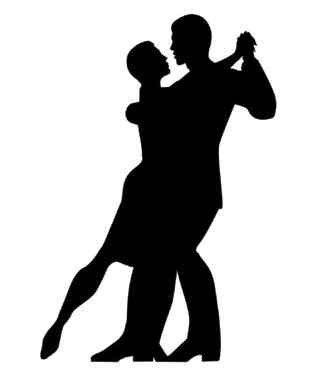- MENU
- HOME
- SEARCH
- WORLD
- MAIN
- AFRICA
- ASIA
- BALKANS
- EUROPE
- LATIN AMERICA
- MIDDLE EAST
- United Kingdom
- United States
- Argentina
- Australia
- Austria
- Benelux
- Brazil
- Canada
- China
- France
- Germany
- Greece
- Hungary
- India
- Indonesia
- Ireland
- Israel
- Italy
- Japan
- Korea
- Mexico
- New Zealand
- Pakistan
- Philippines
- Poland
- Russia
- South Africa
- Spain
- Taiwan
- Turkey
- USA
- BUSINESS
- WEALTH
- STOCKS
- TECH
- HEALTH
- LIFESTYLE
- ENTERTAINMENT
- SPORTS
- RSS
- iHaveNet.com: Health
Lane Anderson, Psychology Today Magazine

Dancing can relieve stress, boost self-confidence, improve concentration, even reverse depression
Americans have become a nation of armchair dancers, mesmerized by "Dancing with the Stars" and "So You Think You Can Dance." But research shows that getting a groove on yourself is more beneficial--improving social skills, lifting your spirits, even reversing depression. In a recent study at the In a recent German study of music and partner dancing, 22 tango dancers had lower levels of stress hormones and higher levels of testosterone after dancing with partners, and they felt sexier and more relaxed. In a study done at the The physically expressive nature of dance also helps people release and thereby recognize pent-up feelings, the first step to dealing with them. "Depressed patients tend to have a curved back, which brings the head down so it's facing the ground," says Donna Newman-Bluestein, a dance therapist with the GET A MOVE ON Even if you haven't strapped on dance shoes since seventh-grade etiquette class, you can gain the benefits of moving to music. Here are some options for getting started: Dancing with Yourself
You can use dance to free your inner Beyonce and improve your concentration, simply by moving to music at home. "Getting a beat going in your body can get you out of a disorganized fog," says Karen Bradley, professor of dance at the Strictly Ballroom
"If you can walk, you can do the Argentine tango," insists Pinniger, who admits that some concentration and improvisation are required. But, she says, the effort pays off because it forces the brain to take a break from negative thinking. "It gives you hope that you can control the thoughts elsewhere, too." Join the Dance Crew
Research shows that moving with others expands your sense of self and of social connectedness. No macarena at a bar mitzvah in your future? Join a group class. Start with a form of dance in line with your personality to facilitate learning. Super structured and orderly? Try ballet. Expressive or assertive? African dance. Playful? Zumba. &nsbp; Available at Amazon.com:
Wellbeing: The Five Essential Elements Healthy Travel: Don't Travel Without It! The Good Doctor's Guide to Colds and Flu Get Stronger, Feel Younger: The Cardio and Diet-Free Plan to Firm Up and Lose Fat Copyright © Psychology Today Magazine. All rights reserved.
AGING |
ALTERNATIVE |
AILMENTS |
DRUGS |
FITNESS |
GENETICS |
CHILDREN'S |
MEN'S |
WOMEN'S
Health - Dance Yourself Happy: Why Swinging Your Body Lifts Your Spirit